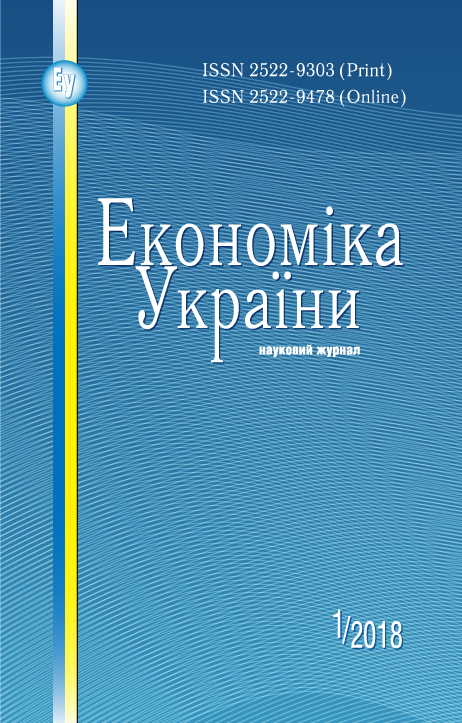FINANCIAL ACCOUNTING METHODOLOGY AND DEFINITION OF ASSET: AUSTRALIAN AND INTERNATIONAL PERSPECTIVES
DOI:
https://doi.org/10.15407/economyukr.2018.01.082Keywords:
economy, financial accounting, asset, Australian Accounting Standards Board, International Accounting Standards Board, definition of assetAbstract
This article analyses the role of the asset in economic performance of a business and why it is important to work out a precise definition of the asset for managerial and financial analysis purposes. A short overview of Australian accounting system including both institutional and regulatory aspects has been made by the author as well as the normative nature of related regulations is examined. The research provides insights what conditions required for the asset to be in existence and analyses these insights in the light of both scholars’ opinions and accounting regulations as well. Furthermore, the research looks at the conceptual framework drafts to see how the conditions mentioned above are developed in related papers and shows the process of evolution of definition of the asset under the standard-setting activity of Australian Accounting Standards Board and International Accounting Standards Board and how this activity makes effect on contemporary views in regard to definition of the asset. This article also involves discovering what problems in theory of accounting and practice can arise if existing definition will not be corrected and strongly criticizes the concept of identity between asset and economic benefits which is promoted by some accounting researches in their works. The author suggests in his article that asset and economic benefits are totally different economic phenomena and provides a clear idea what conceptual economic views are taken into consideration by Australian and international experts to elaborate a precise definition of the asset. This research also examines the main characteristics of the proposed definition promoted by international accounting experts and some possible impacts of implementation of this definition on accounting practice are considered. The role of International Accounting Standards Board and its influence on Australian standard-setting bodies’ activity are also researched in the article.
References
Sutherland J., Canwell D. Key Concepts in Accounting and Finance. Basingstoke, Palgrave Key Concepts, 2004.
doi.org/10.1007/978-0-230-20472-0
Hoggett J., Edwards L., Medlin J., Tilling M. Accounting. Curtin University edition. Milton, John Wiley & Sons, 2009.
Deegan C. Financial Accounting Theory. Sydney, McGrow Hill, 2007.
Peirson G., Ramsay A. Financial Accounting. 4th ed. Sydney, Pearson Education Australia, 2006.
Orrell M. IASB Proposes Revisions to Its Conceptual Framework. Head up, June 26, 2015, Vol. 22, Iss. 22, p. 11, available at: www2.deloitte.com/content/dam/Deloitte/us/Documents/audit/ASC/HU/2015/us-aers-headsup-iasb-proposes-revisions-to-its-conceptual-framework-062615.pdf.
Downloads
Published
How to Cite
Issue
Section
License
Copyright (c) 2024 Economy of Ukraine

This work is licensed under a Creative Commons Attribution-NonCommercial-NoDerivatives 4.0 International License.



